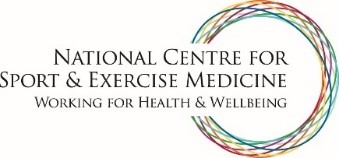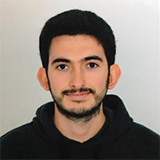Predictors of resilience and frailty
Loughborough University is conducting research into whether a simple breath test could predict how fast you age.
As we get older, we become more susceptible to frailty, where multiple systems start to decline. Frail individuals show less ability to recover following illness or injury, so it is important to predict frailty so that doctors can target treatment.
Our research will help us to discover whether a simple breath test can predict frailty.
As part of a larger research programme funded by Wellcome LEAP and the Temasek Trust, we are looking for people aged 18-90 who are willing to visit the university for a breath test and some other measurements.
People aged 65+ will be asked to return for further visits and keep a diary of any falls.


Taking part
Who is eligible
We are looking for:
- Men and women
- Aged 18-90 years
- Do not currently smoke or vape
- No lung disease or infection
- Not currently pregnant or breastfeeding
To check if you may be eligible to join the trial, please fill out our screening questionnaire.
Based on your answers, we will contact you about your eligibility and what are the next steps.
Measurement sessions
People aged 18 to 64 will be invited for just one visit.
People aged 65+ may be invited to return six and twelve months later; or after a fall. Most will be invited for two or three visits.
Each visit may last one to two hours. Sessions will be arranged at a mutually convenient time as far as possible.
Measurements will include:
- A breath sample of exhaled air to assess volatile organic compounds.
- Blood, saliva and urine sample to examine changes in markers relating to ageing.
- Questionnaires about your background, medical history, physical activity level and cognitive function.
- Scans to assess muscle size and bone density.
In people aged 65+ only:
- Some simple tests of physical function, e.g. how quickly you walk a 4-metre distance and balance (e.g. how still you can stand).
- A monthly diary to record any falls.
- You may be offered the option to wear an activity monitoring watch.
Location and travel
Visits will usually be at the National Centre for Sport and Exercise Medicine (NCSEM) clinical facilities and/or research lab.
We may be able to reimburse travel expenses or arrange transport by prior arrangement.
The benefits of participating
The potential benefits of participating are:
- You will help to provide information about whether a simple breath test could predict how well we age.
- You will receive measurements of your bone density and body composition.
- You will be informed of your overall study findings and how these compare to others.
More information
For more information about the study and the benefits of taking part, please download our participant information sheet:
Alternatively, you can contact our Team by phoning or texting: 01509 227890
Meet our team

Usiju's research centres on identifying novel biomarkers that are specifically linked to frailty, utilizing samples of blood, urine, and breath.

Caliskan’s PhD research examined effects of different exercise modalities on the risk factors for osteoporosis and osteoarthritis, as well as pain and physical function in postmenopausal women

Janelle’s current research aims to develop and deploy advanced 3D tissue models of blood-brain-barrier, skeletal muscle, and bone with features of ageing and pathway analysis.

Dr Brooke-Wavell’s research examines the influence of lifestyle factors on risk factors for osteoporosis, falls, physical function and related health outcomes.

Prof Stolzing’s research is focused on ageing, ageing interventions and biomarker development. Including developing senolytics - drugs that specifically kill off old (senescent cells).
Get in touch
For general enquiries, please contact: +44 (0)1509 227890